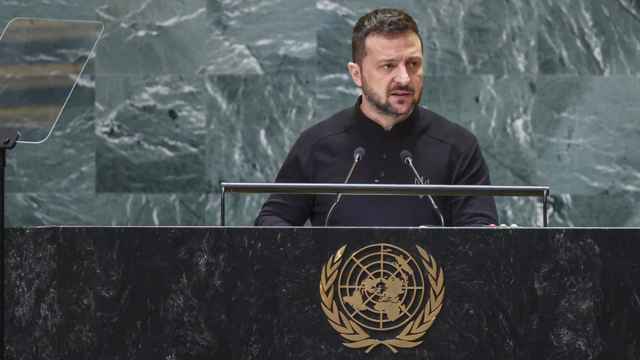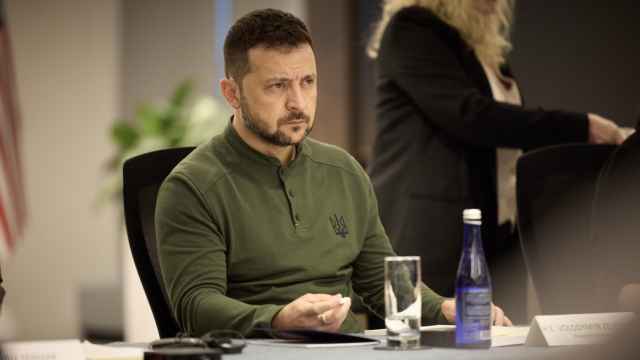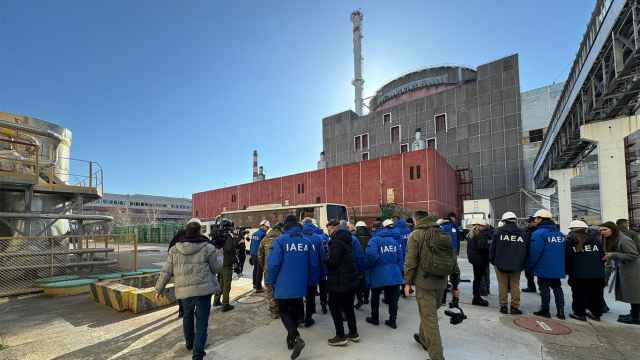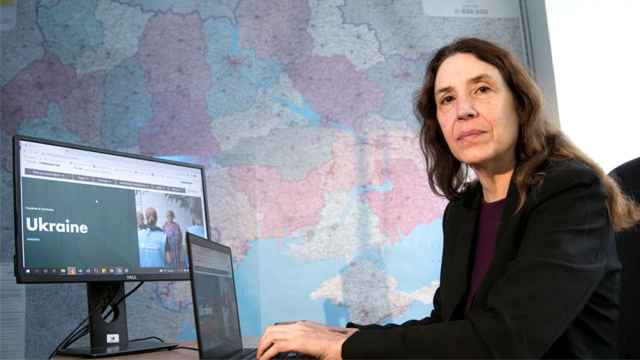The United Nations' top court on Wednesday mostly rejected Ukraine's claims that Russia was financing "terrorism" in eastern Ukraine, saying only that Moscow had failed to investigate alleged breaches.
Kyiv had accused Moscow of being a "terrorist state" whose support for pro-Russian separatists in eastern Ukraine was a harbinger of the full-fledged 2022 invasion.
It wanted Russia to compensate all civilians caught up in the conflict, as well as victims from Malaysia Airlines flight MH17, which was shot down over eastern Ukraine in 2014.
But the International Court of Justice (ICJ) tossed out most of Ukraine's claims, ruling only that Russia was "failing to take measures to investigate facts... regarding persons who have allegedly committed an offense."
The ICJ "rejects all other submissions made by Ukraine," it said in a statement.
This case predates Russia's 2022 invasion of Ukraine. The ICJ will decide on Friday whether it has jurisdiction to rule in a separate case over that war.
The court said that only cash transfers could be considered as support for alleged terrorist groups under the terms of the international convention on terrorism financing (ICSFT).
This "does not include the means used to commit acts of terrorism, including weapons or training camps," the court ruled.
"Consequently, the alleged supply of weapons to various armed groups operating in Ukraine" falls "outside the material scope of the ICSFT" convention, the court said.
Ukraine's top lawyer in the case, Anton Korynevych, said the verdict nonetheless had "big value."
"For us it is a very important day because this is a judgment that says the Russian Federation violated international law," he told reporters after the verdict.
"This is the very first time that Russia is called a violator of international law."
'Lawfare'
Russia was also in the dock for alleged breaches of an international convention on racial discrimination because of its treatment of the Tatar minority and Ukrainian speakers in occupied Crimea.
Here the court found that Russia had not taken sufficient measures to enable education in Ukrainian.
The case started in 2017 and has seen lengthy exchanges in the ICJ's Great Hall of Justice, plus thousands of pages of documents submitted to the judges.
It is part of a strategy of so-called "lawfare" waged by Ukraine against its adversary that has also seen it drag Moscow to court over maritime law and alleged human rights abuses.
During hearings on the case, Alexander Shulgin, Russia's ambassador to the Netherlands, accused Ukraine of "blatant lies and false accusations... even to this court."
Korynevych had retorted in the hearings that Russia was trying to "wipe us off the map."
"Beginning in 2014, Russia illegally occupied Crimea and then engaged in a campaign of cultural erasure, taking aim at ethnic Ukrainians and Crimean Tatars," he said.
In 2017, the ICJ rejected Kyiv's initial request for emergency measures to halt Russia's funding of separatists.
The ICJ, based in The Hague, rules on disputes between states and is often confused with the International Criminal Court (ICC), which prosecutes war crimes by individuals.
Its rulings are final and cannot be subject to appeal, but it has little power to enforce them.
For example, it issued an emergency ruling ordering Russia to halt its Ukraine invasion one month after tanks rolled over the border — to no avail.
A Message from The Moscow Times:
Dear readers,
We are facing unprecedented challenges. Russia's Prosecutor General's Office has designated The Moscow Times as an "undesirable" organization, criminalizing our work and putting our staff at risk of prosecution. This follows our earlier unjust labeling as a "foreign agent."
These actions are direct attempts to silence independent journalism in Russia. The authorities claim our work "discredits the decisions of the Russian leadership." We see things differently: we strive to provide accurate, unbiased reporting on Russia.
We, the journalists of The Moscow Times, refuse to be silenced. But to continue our work, we need your help.
Your support, no matter how small, makes a world of difference. If you can, please support us monthly starting from just $2. It's quick to set up, and every contribution makes a significant impact.
By supporting The Moscow Times, you're defending open, independent journalism in the face of repression. Thank you for standing with us.
Remind me later.






